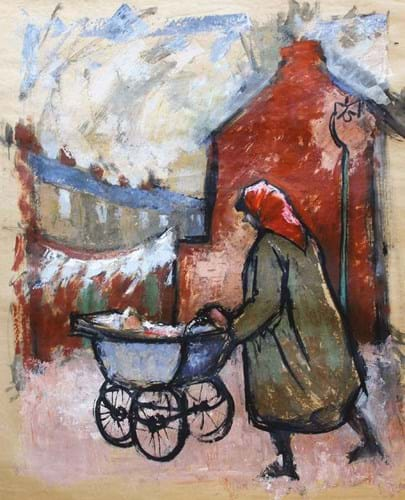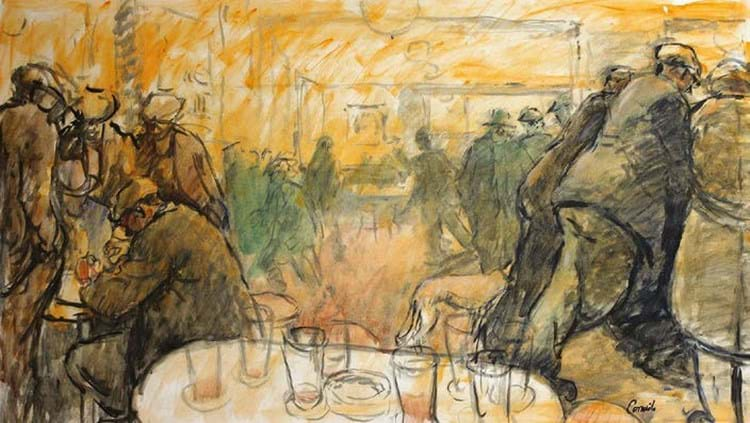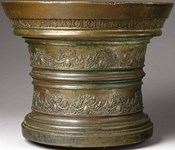
The centenary of his birth is celebrated at a Castlegate House Gallery exhibition in Cumbria next month. The dealership represents the artist’s estate and offers a retrospective of fresh-to-market works including paintings, charcoals, pastels and sketches directly from the family.
Cornish was born in Spennymoor, Durham, and started as a miner aged 14. The following year he joined a local sketch club in a local arts community, the Spennymoor Settlement, and by the early 1960s had started rising to prominence for his depictions of town life.
Many of his compositions were the result of fast sketches of people in the street, at the pub or on the pit road and informed by his own experience.
In 1963 he was featured in an early Melvyn Bragg TV production, Two Border Artist, also focused on artist Sheila Fell, but did not choose to leave the pit for another three years.
The show in Cockermouth runs from July 6-26 and features 37 works rendering a world and way of life that largely disappeared during his lifetime.
“Norman wasn’t painting and drawing what he saw, he was depicting how he lived, how he worked, how his children played,” says Castlegate director Christine Swallow.

More Cornish celebrations
Other shows commemorating the artist are staged this year at the Bowes Museum (November 16, 2019-February 23, 2020) and the Mining Art Gallery in Bishop Auckland (until October 13). The Beamish museum, meanwhile, is recreating Cornish’s former home in its ‘1950s town’. It is expected to open next year.
Castlegate gallery director Steve Swallow adds: “Norman spent his life in the heart of a British mining community; his work chronicles a society that is now owned by past generations and his work is a true social record of a working-class community from the 1960s and beyond.”














